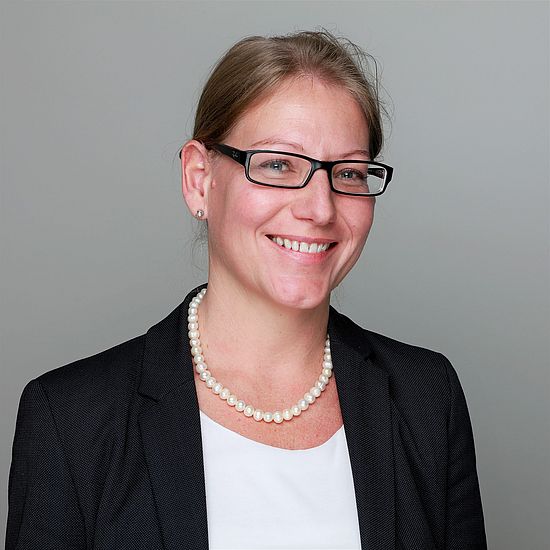
MajorLabor Economics, Human Resources and Organization
Sie lernen, wie Arbeitnehmende und Arbeitgebende als ökonomisch handelnde Akteure auf Arbeitsmärkten interagieren und wie vor diesem Hintergrund unternehmerische Entscheidungen zu Personal- und Organisationsfragen getroffen werden. Dabei geht es insbesondere auch darum, Informations- und Anreizprobleme zu lösen. Der Major bietet Ihnen eine Vorbereitung für eine Tätigkeit in Unternehmen, Verbänden und staatlichen Organen, die sich schwerpunktmässig mit dem Faktor «Arbeit» bzw. «Humankapital» befassen. Im Vordergrund stehen die Abteilungen Personal bzw. Human Resources in Unternehmen, Arbeitgeber- und Arbeitnehmerverbände sowie sich mit dem Arbeitsmarkt beschäftigende Sektionen des Staates (Bund, Kantone und Gemeinden).
| Modul | Kreditpunkte |
|---|---|
| Fundamentals in Business and Economics | 12 |
| Core Courses in Labor Economics, Human Resources and Organization | 18 |
Research Design in Labor Economics, Human Resources and Organization | 6 |
| Specific Electives in Labor Economics, Human Resources and Organization | 12 |
| General Electives | 0 bis 24* |
| Masterarbeit in Labor Economics, Human Resources and Organization | 18 or 30 |
| Total | 90 |
* Wenn Sie in anderen Modulen des Studiengangs mehr als die Mindest-KP-Zahl erworben, so reduziert sich entsprechend die Mindest-Kreditpunktzahl, im Extremfall auf 0 KP.
Studierende mit einem Hochschulabschluss, der quantitativ und qualitativ dem Bachelor of Arts in Business and Economics der Universität Basel entspricht, werden ohne Auflagen zum Masterstudium zugelassen. Andere Hochschulabschlüsse werden auf Äquivalenz überprüft und sind gegebenenfalls mit Auflagen zugelassen.
Interessenten mit einem Bachelorabschluss in Betriebsökonomie der Fachhochschule Nordwestschweiz finden ausführliche Informationen zur Zulassung und dem optimalen Studienverlauf in diesem Merkblatt.
Die detaillierten Zulassungsbedingungen sind im Studienplan geregelt. Bei Fragen zu möglichen Auflagen können Sie sich an das Studiendekanat der Wirtschaftswissenschaftlichen Fakultät wenden. Ohne eine vorliegende Anmeldung zum Studium kann jedoch nur eine rechtsunverbindliche Auskunft erfolgen.
Ihre Bewerbung richten Sie bitte an das zentrale Studiensekretariat. Von dort erhalten Sie auch den rechtsverbindlichen Zulassungsentscheid.
Modulverantwortlicher:

Prof. Dr. Michael Beckmann
Human Resources and Organization
Michael Beckmann is Professor of Human Resources and Organization at the University of Basel and Research Professor at the Institute for Employment Research (IAB). His research focusses on empirical issues in personnel and organizational economics. The main areas of his current research are employee empowerment, self-managed working time, digitalization, stress at the workplace, and employee representation. He published in international journals, such as European Economic Review, Journal of Economic Behavior & Organization, Journal of Economics and Statistics, Review of Managerial Science, and Schmalenbach Business Review.
Weitere Dozierende

Prof. Dr. Georg von Schnurbein
Philantrophy Studies
Georg von Schnurbein is Associate Professor for Philanthropy Studies at the Faculty of Business and Economics and founding director of the Center for Philanthropy Studies (CEPS) at the University of Basel. CEPS is an interdisciplinary institute for research and executive education on philanthropy and nonprofit organizations in general. Georg serves in several functions in boards in the field of international research on philanthropy. He has co-authored the latest edition of the Swiss Foundation Code and published in several impact journals such as Nonprofit & Voluntary Sector Quarterly and European Management Journal. His research interest is on nonprofit governance, financial health of nonprofits, and volunteering.

Prof. Dr. Conny Wunsch
Conny Wunsch is Professor of Labor Economics at the University of Basel and head of the Graduate School of Business and Economics. Her research focuses on labor economics and econometric methods. She is co-editor of Labour Economics and the Swiss Journal of Economics and Statistics, and a member of the scientific advisory boards of the KOF Swiss Economic Institute, the Institute for Employment Research (IAB), and the RWI Essen. She is also a research fellow of the Centre for Economic Policy Research (CEPR), CESifo, DIW, and IZA. She published in Experimental Economics, the Industrial and Labor Relations Review, the Journal of Econometrics, the Journal of the European Economic Association, the Journal of Health Economics, the Journal of Labor Economics, and the Review of Economics and Statistics.
Kontakt

Dean of Studies' Office
University of Basel, Faculty of Business and Economics
Peter Merian-Weg 6
CH-4002 Basel
phone: +41 61 207 33 01
Website Dean of Studies' Office
Quick Links
Social Media
